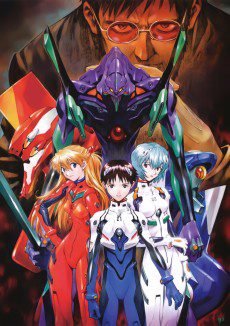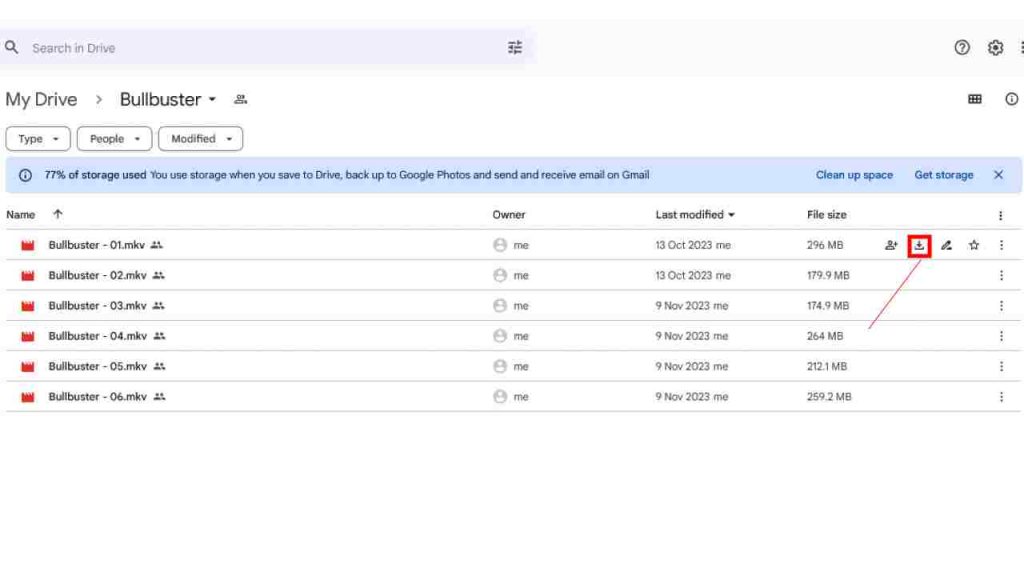- Table of Content:


Neon Genesis Evangelion
Dive into the mind-bending world of Neon Genesis Evangelion. Explore mechs, existential themes, and gripping storytelling in this iconic anime series.
MyAnimeList Rating
| Year | 1995 |
|---|---|
| Formats | Streaming |
| Episodes | 26 |
| Duration | 24 mins |
| Status | Finished |
| Release Date | October 3, 1995 |
| End Date | March 27, 1996 |
| Format | TV Series |
| Studio | GAINAX, Tatsunoko Production |
Trailer
Synopsis
In the year 2015, the Angels, huge, tremendously powerful, alien war machines, appear in Tokyo for the second time. The only hope for Mankind's survival lies in the Evangelion, a humanoid fighting machine developed by NERV, a special United Nations agency. Capable of withstanding anything the Angels can dish out, the Evangelion's one drawback lies in the limited number of people able to pilot them. Only a handful of teenagers, all born fourteen years ago, nine months after the Angels first appeared, are able to interface with the Evangelion. One such teenager is Shinji Ikari, whose father heads the NERV team that developed and maintains the Evangelion. Thrust into a maelstrom of battle and events that he does not understand, Shinji is forced to plumb the depths of his own inner resources for the courage and strength to not only fight, but to survive, or risk losing everything.
(Source: AniDB)
Note: Later releases include edited versions of Episodes 21-24 called the "Director's Cut" with some visual editing and adding extra scenes that appeared in the theatrical recap 'Death'.


To access the private drive just open Google Group and join the Google Group, ignore the rest. After that, Enjoy.
Related Posts
What is Kaiju? This is the Origin of the Term
July 6, 2024Rating Entries
There are no reviews yet. Be the first one to write one.
Editor's Review

A Masterpiece of Psychological Depth and Mecha Brilliance – “Neon Genesis Evangelion”
“Neon Genesis Evangelion” stands as a towering achievement in the world of anime, a tour de force that transcends the boundaries of its genre. With its profound exploration of existentialism, psychology, and human connection, this series remains an enduring classic that has left an indelible mark on the medium.
Set in a dystopian future where colossal beings known as Angels threaten humanity’s existence, the story follows Shinji Ikari, a reluctant teenage pilot who is recruited to pilot an enigmatic biomechanical weapon called an Evangelion. Alongside a diverse cast of fellow pilots, each grappling with their own inner demons, Shinji and his comrades face not only external threats but the complex internal struggles that arise from their newfound responsibilities.
“Neon Genesis Evangelion” is a symphony of multidimensional characters, each burdened by their pasts and psychological traumas. Shinji’s journey is a heartrending exploration of self-worth, identity, and the human condition. The character development is meticulous, presenting flawed individuals who evolve and regress in strikingly realistic ways. Through the trials they face both in and out of their Evangelion units, viewers are confronted with the raw complexity of the human psyche.
The series’ visual aesthetic is iconic, characterized by its inventive mecha designs, visceral battle sequences, and striking use of symbolism. The juxtaposition of serene, contemplative moments with explosive, high-octane action creates a dynamic visual experience that is as emotionally charged as it is visually captivating. The use of abstract imagery and evocative color palettes serves to further underscore the narrative’s psychological depth.
“Neon Genesis Evangelion” is renowned for its thematic richness. It delves into profound questions about human existence, the nature of consciousness, and the search for meaning in a seemingly indifferent universe. The show’s intricate exploration of religion, philosophy, and psychoanalysis invites viewers to engage with its themes on multiple levels, making it a work that continues to inspire fervent discussion and interpretation.
The series also excels in its portrayal of complex relationships. The interactions between the main characters, particularly the fraught dynamic between Shinji and his enigmatic father Gendo, are layered with tension, yearning, and unspoken emotions. These interactions add an extra layer of depth to the narrative, highlighting the importance of human connection in the face of existential crisis.
“Neon Genesis Evangelion” is not without its moments of controversy and ambiguity, which have contributed to its enduring mystique. Its unconventional conclusion, open to a multitude of interpretations, has become the subject of intense scrutiny and analysis, further solidifying its status as a work of art that challenges and provokes thought.
In conclusion, “Neon Genesis Evangelion” is a monumental achievement in anime history. Its unparalleled exploration of the human psyche, complex character dynamics, and profound philosophical themes make it a transcendent work of art that continues to resonate with audiences worldwide. For those seeking an intellectually stimulating, emotionally resonant anime experience, “Neon Genesis Evangelion” is an absolute must-watch that stands as a testament to the enduring power of the medium.



















